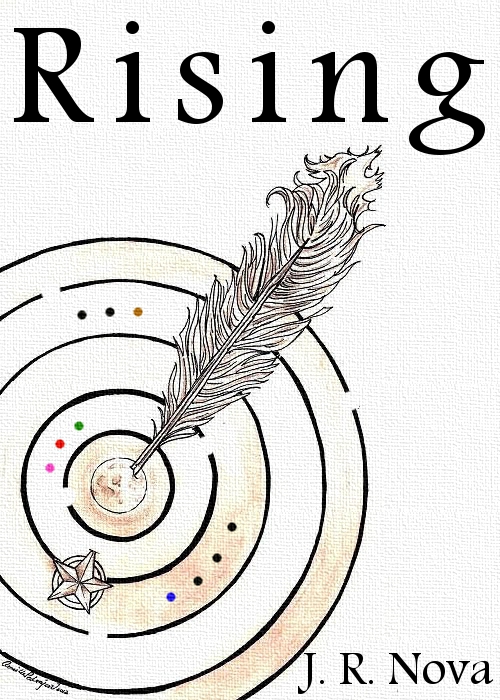“Why We Hate” by Rush W. Dozier,
Jr. was an interesting book. Dozier substantiated many of the ideas I
have had about hatred: namely, that hatred is a “normal” human
defense mechanism. Racism, for example, would not be possible without
the human instinct to regard what is different as dangerous (the
opposite of our instinct to be curious, but something that would have
protected us from poisonous fruit or venomous snakes in the wild; it
serves less purpose in our relatively safe, modern environment).
Dozier makes the case that we hate
because of positive evolutionary behaviors. That basically
(and to simplify it a great deal, I don't doubt) we are prejudiced
and commit violence against each other largely for the same reasons
we don't like spiders and wish to step on them. The same processes
are happening in each case. We see something that our brain
interprets as dangerous and we react to it. The problem of course is
that extreme hatred is out of place in society, and the hurtful
effects of prejudice and hatred reach far beyond the individuals
involved.
Dozier explained his theories in simple, straight-forward language, making the book easy to read as he discussed how the brain processes external stimuli, how it reacts to its own emotions, but lacking in the book is any clear way to use these insights.
Dozier explained his theories in simple, straight-forward language, making the book easy to read as he discussed how the brain processes external stimuli, how it reacts to its own emotions, but lacking in the book is any clear way to use these insights.
He writes that, someday, hate will be
treated as a medical disorder, in the realm of psychiatry. But if
this book shows the clearest picture of hate that we have to go on,
it's obvious to me that we're lacking a sure-footed road to the future.
Or, perhaps, the insights are
the solutions we need to live without hate. Understanding the
“reptilian” primitive brain structures of the amygdala which
cause fight or flight reactions, understanding how children learn
violence at a young age—how violent adults were once children who
were indoctrinated into a culture of hate—how mental illness and
everyday stress can lead to anger, even rage. Chapter 6, “The
Primitive Mind” was especially interesting to me.
I was encouraged that Dozier dedicated part
of the book to self-hate; depression, eating disorders, and even
suicide. The current “gun control” battle in the wake of the
Sandy Hook shooting is an example of how we ignore suicide in our
culture. Around 19,000 people shoot and kill themselves in America
each year, yet the media attention remains on mass shootings that
take fewer than 100 lives a year on average. Both are tragedies, but
the former is more personal to many of us, and it's not enough to
discuss hatred without discussing the hatred of self that leads to
depression and negative self-images.
That said, the book didn't really say
anything I hadn't already heard before or hadn't thought of myself. I
didn't get as much out of it as I expected, based on the title, and
never having read a book specifically on hatred (it was the book I
was most excited about on my first trip to the library). Apparently
I've absorbed most of this information by reading psychology
books—which this is certainly not. So “Why We Hate” was little
more than a boost to my own ego (verifying my ideas), and perhaps
something I'll remember to bring up next time I'm debating
violence—“Why don't you read...” For someone new to the subject it may be a perfect overview.
There are a few downsides to “Why We Hate.” Because it was written so shortly after 9/11, and by a
journalist (instead of a doctor or scientists), the book comes off as
opportunism. I would recommend it to someone only because I don't
know of a better book, or any other book on hatred
specifically. It's a one-stop shop for understanding hate and anger.
You'll find the same information on the internet, in documentaries,
etc. Because it glossed over as much information as it gave, and
because I felt too many “real life” examples of hatred were used
(and sometimes reused) to make an emotional point instead of showing
statistical or experimental data, “Why We Hate” could have been
titled “Hatred for Dummies.”
One interesting note to make on the
book is that on each page, at the top where the chapter titles are,
is a swastika. I thought that was the most interesting part of the
whole book, more so than anything Dozier wrote, because it shows the
polarity we have towards symbols (as well as people) better than any
word can.
A picture is worth a thousand
words, and in the Western world the swastika is a symbol of hatred.
In the Eastern world the swastika is often a symbol—representing
the sun—of peace and renewal.
I can understand why he used the
swastika. There's no better symbolism for how low humans can sink
into violence, or be lifted out of our apparent animal instincts.











Great review! The book sounds like it gives an overview of the topic, so it could be of interest. Interesting points as well. Thanks for sharing!
ReplyDeleteYou're welcome :)
Delete